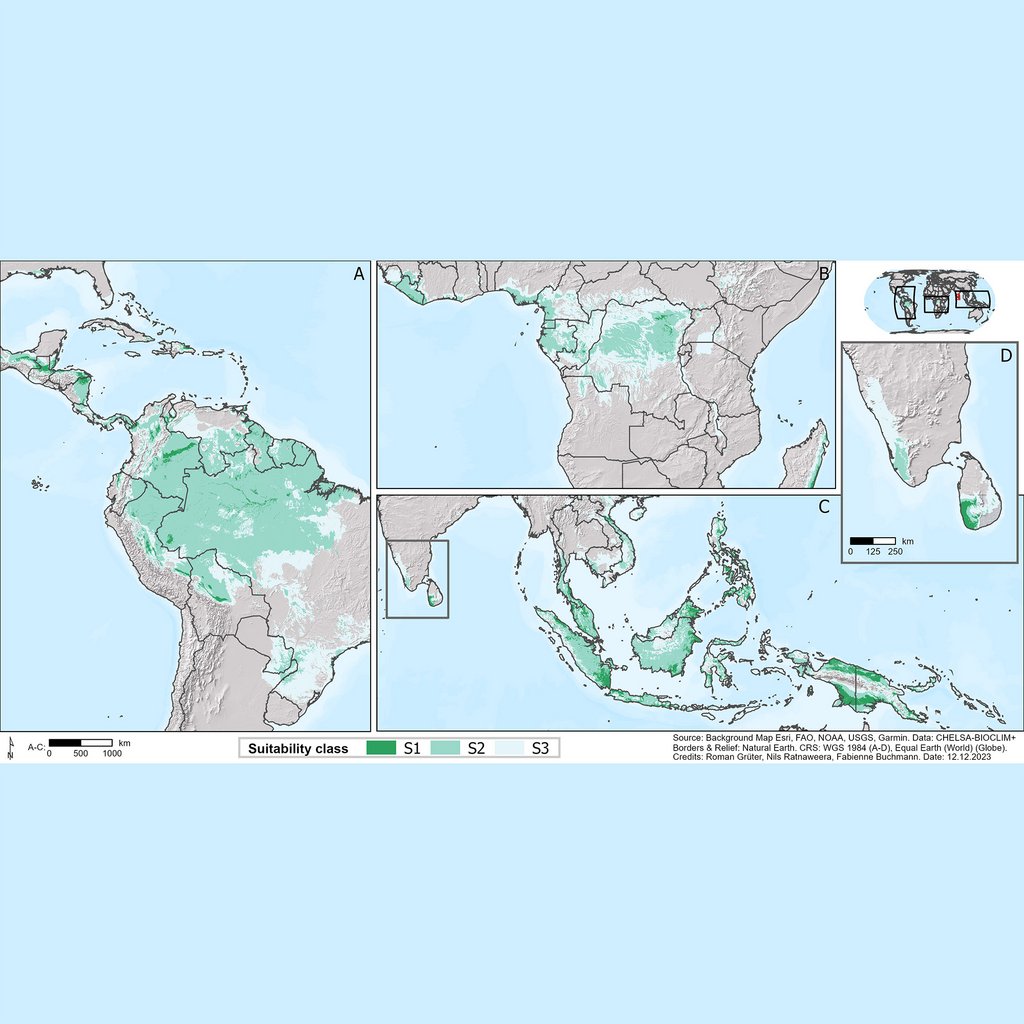Climate change impacts on black pepper cultivation – a global suitability analysis
What do we see on the project photo?
Current bioclimatic suitability for black pepper (Piper nigrum L.) cultivation, classified into high (S1), moderate (S2) and marginal (S3) suitability. A Central and South America, B West, Central and East Africa, C South and Southeast Asia, D India and Sri Lanka.
How would you explain to a child what the project is doing?
In this project, we analyse how climate change may affect black pepper growing conditions globally. Therefore, we compare current and future climatic conditions with black pepper growth requirements, incorporating topography and soil factors in our assessment.
What is the project’s main objective?
The main objective of the projects is to anticipate potential shifts in suitable black pepper growing regions under different climate change scenarios. This involves identifying the key drivers of change and the primary limiting factors for cultivation.
Why is the project important?
Currently, there is very limited information available about potential climate change impacts on the cultivation potential of spices and herbs. This pilot study tries to fill this gap by investigating black pepper (Piper nigrum L.), also known as the ‘King of Spices’.
What has been the most positive moment during the project?
We had the chance to engage with international experts for black pepper cultivation and trade to get a deep understanding of the black pepper value chain and for validating our model assumptions. This interaction was a project highlight.
What have been the biggest challenges encountered in the project?
Dealing with black pepper as a niche crop means that there is limited information about its production, growth requirements and management. Both grown in diversified smallholder production systems and in large-scale monoculture plantations, contextualizing gathered information becomes crucial.
What is the most important lesson learned from the project?
It was interesting to find that water availability, including rainfall intensity and distribution, is crucial for successful black pepper cultivation. Changing precipitation patterns due to climate change therefore directly affect black pepper suitability in many growing regions.
About the project
Title:
Climate change impacts on black pepper cultivation – a global suitability analysis
Contact:
Dr. Roman Grüter, ZHAW Zürich
Duration:
1 year (2023)
Funding institutions:
Adalbert-Raps-Stiftung
Implementing institution:
Institute of Natural Resource Sciences (IUNR), Zurich University of Applied Sciences (ZHAW)
Links to further information:
not available yet

